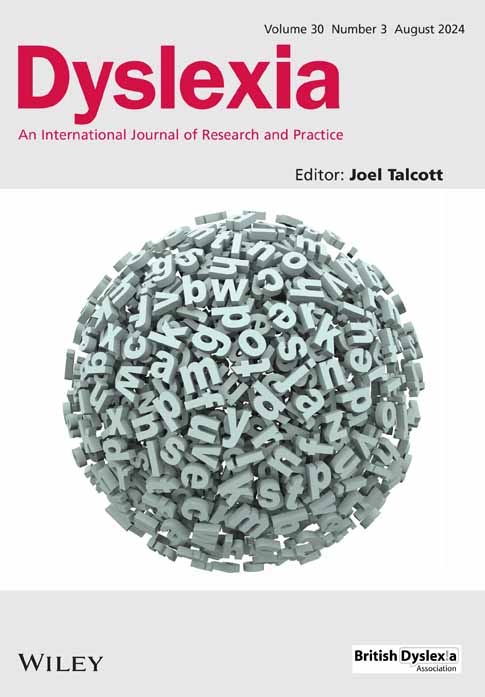Feedback timing-modulated weather prediction reveals relative deficits in both procedural and declarative learning in adults with dyslexia
Abstract
A topic of recent debate is the hypothesis that deficits associated with developmental disorders of language, such as reading disability, can be explained by a selective weakness in procedural memory. Adults with (n = 29; RD) and without (n = 29; TD) reading disability completed a weather prediction task under immediate and delayed feedback conditions, that rely on the striatal (procedural) and hippocampal (declarative) circuits, respectively. We examined trial-by-trial accuracy by feedback condition (immediate vs. delayed) and group (RD vs. TD). In the immediate feedback condition, we found the TD group to have a higher learning rate than the RD group. In the delayed feedback condition, we found the TD group reach a high level of accuracy early, and outperform the RD group for the duration of the task. The TD group also made gains in reaction time under both conditions, while the RD group slowed in their responses. Taken together, it appears that while procedural memory is indeed impaired in adults with reading disability, to a lesser extent, declarative memory is also affected. This lends partial support to the PDH, and more broadly to the position that reading disability is associated with general (non-linguistic) difficulties in learning.
CONFLICT OF INTEREST STATEMENT
The authors declare no conflicts of interest.
Open Research
DATA AVAILABILITY STATEMENT
The critical data set and the code used to run the analyses are made available through the Open Science Framework (https://osf.io/cefz8/?view_only=62ad061ce77e4fcba1954ea488df461e).




